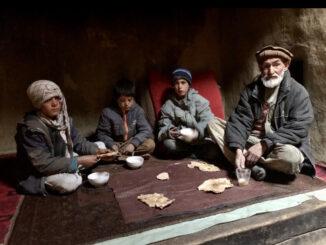
Massachusetts Peace Action welcomes the announcement that President Trump will withdraw significant numbers of U.S. troops from Afghanistan and Iraq.
Our attempt to impose our will on those countries has been a complete failure. We should go beyond what Trump has ordered; our military presence in both countries should be ended immediately, along with those in Syria and Somalia.
The peace movement has long opposed US-instigated wars and the deaths, destruction, and financial costs associated with such wars. US involvement in Afghanistan since 2001 constitutes its longest-running war, and – as the Afghanistan Papers, published by the Washington Post in late 2019 after a three-year court battle, the costs have been staggering. The Guardian newspaper noted that the Afghanistan Papers, reveal “deliberate misinformation, wishful thinking, massaging of figures and cruel waste of lives – civilian and military – and a trillion dollars spent in pursuit of an unwinnable war.” In recent months, academic and policy papers have pointed to the failures of US involvement in Afghanistan.
For at least a decade, MAPA has called for the withdrawal of US troops, as their presence has only aggravated a highly contentious situation pitting a resurgent Taliban and their al-Qaeda allies against a weak central government. We supported HR.1666 by the late Rep. Walter Jones in 2017-18 and the amendment to the House NDAA introduced in July by Rep. Ilhan Omar (Sec. 1213) calling for the accelerated end of US combat operations in Afghanistan. We support calls for the full and unconditional withdrawal of US troops, but we also are concerned about prospects for peace and security in Afghanistan and the wider region.
When the Trump administration announced plans for US troop withdrawal, it claimed to broker a “peace agreement” between the Taliban and the Afghan government in Qatar in September 2019. There is no peace in Afghanistan and likely to be none after the US withdrawal because of the Taliban’s intent to assume total power, as well as the presence of both al-Qaeda and ISIS. The month of October alone saw attacks on soldiers and civilians in Helmand and Nimrouz provinces, along with Afghan and US military responses, and in an education center in Kabul. The US and its allies in the military coalition (ISAF) have lost the war. The lesson should be clear: US military interventions never have positive outcomes.
The American intervention on the side of the Mujahideen in the 1980s and the arming of jihadists set off a chain reaction that reverberates to this day. Among the “collateral damage” are Afghan women and girls, who remain mired in patriarchal structures and physical insecurity. When the Democratic Republic of Afghanistan (DRA) was established in April 1978, among its first decrees was compulsory schooling for girls – something that has yet to be accomplished 40 years later. In the 1980s, US pundits and anti-communist human rights spokespersons labeled the government’s education policy a form of “Sovietization”.
The Carter administration’s hostility produced a cynical “Afghan trap” for the Soviet Union; CIA and Pakistani encouragement of an armed tribal-Islamist rebellion precipitated a Soviet military intervention to bolster the Afghan army’s effort, followed by a Vietnam-like quagmire for the Soviet Union and untold suffering for the Afghan people. The decade-long nightmare pitted the Afghan army and Soviet troops against the U.S., Pakistan, Saudi Arabia, China, Iran, the Gulf states, all supporting the Mujahideen diplomatically, logistically, and militarily. The last of the Soviet troops withdrew in February 1989 and the Afghan government fell to the Mujahideen in spring 1992, after which the US washed its hands of Afghanistan and the Mujahideen began a civil war among themselves. The Taliban emerged to bring order to the Mujahideen’s chaos and brought stability but a reign of terror as well. After 9/11, the US invaded Afghanistan in October 2001 in pursuit of Osama bin Laden and installed a government, led by Hamid Karzai, that came to be known as weak and corrupt. The Taliban resurgence in 2006 brought renewed conflict, which continued beyond the 2009 US military surge. The new government, led by Ashraf Ghani since 2014, is deeply divided and unable to secure peace, stability, and development.
Massachusetts Peace Action is thus aware of US responsibility for Afghanistan’s instability, violence, and underdevelopment. Having wasted lives and resources over the past four decades, we call on the US to support regional diplomacy and cooperation towards peace, stability, reconciliation and reconstruction in Afghanistan, and to provide reparations and development aid through the UN.



